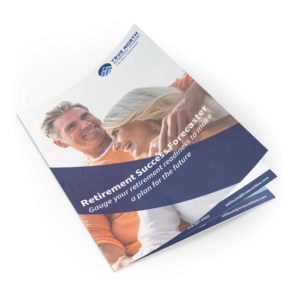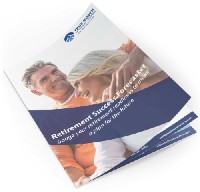“I’m not a cybersecurity expert, but I play one on TV.”
I’m sort of obsessed with cybersecurity. Cyber attacks scare the heck out of me, so here at True North we are vigilant about protecting our client’s data.
Keeping your money safe goes beyond protecting your portfolio when the market crashes. It’s important to us to provide you with peace of mind in all aspects of your life, so we care about your security online as well. News of stolen passwords, social security numbers, and credit card info is pretty much a daily occurrence. And the scary thing about cyber attacks is that the criminals always seem to be 2 steps ahead of the rest of us.
However, there are some important and simple things you can do to protect your data and your money from cyber attack. And with the summer now officially here, many of you are going to be traveling a lot more over the next couple months.
So today, I’ve put together 5 tips to help you stay safe when you travel. So next time you plan to use the airplane wi-fi or charge your phone in public, you’ll have a better understanding of how to protect your devices, your data, and yourself when you travel.
Tip #1: Have a strong password on all of your devices
Does your phone have a password of 1234? Ahhh!! Stop! If anyone ever steals your laptop, your ipad, or your phone, you want to make it very difficult for them to log in to your device. Having a strong password is your first defense.
Use auto-lock too with all of your devices, which will automatically lock your phone or your computer if you’re not using it for a while.
Tip #2: Avoid unknown charging stations
Ok, I recently learned this and have never thought about this as a potential risk, but there is such a thing as a hacked outlet.
You can actually infect your entire phone or computer by plugging into a hacked outlet.
Public charging stations and wi-fi access points are found in places like airports, planes, conference centers and parks, so people can always have access to their phones and data.
But connecting your phone to an unknown port has its risks.
According to an article I used in researching this post (see a complete list of further reading, below), the safest way to charge your iPhone or other mobile device is by connecting the USB cable and charger that came with the device directly to a wall power outlet.
If you’re on the road a lot, consider purchasing a battery-powered charging device. I found one of these on Amazon that will keep my phone charged for 4 days while traveling.
Tip #3: Update your devices before you leave
Several sources cited this as important since many security updates are included in the operating system update for your device.
Tip #4: Conceal Your Screen From Spies
This may seem obvious, but never work where anyone behind you can see what you’re doing, so it’s probably not a good idea to check how your True North accounts in the middle of the Piazza in Rome this summer on your European vacation.
Whenever I’m working in public or using my phone I always make sure no one else can see what I’m doing. It’s good to get in the habit of doing this at all times, even when you’re not doing anything sensitive in public.
Which brings me to my last (and probably most important) point…
Tip #5: Don’t use public Wi-Fi
In general, using public Wi-Fi is not safe. When your in a coffee shop, hotel, airport, or on an airplane, it’s a good idea to use an alternative connection or not use the Wi-Fi at all.
Public places are all places where hackers hang out, waiting for people like you to connect to them so they can start stealing your data. It’s easy for hackers to pose as a legit Wi-Fi source. For example, you might see a Wi-Fi network name at the Portland airport, PDX Airport. Or PDX_airport. The underscore pdx Wi-Fier could be a cybercriminal, posing as a legit source.
These days, security experts recommend using your phone’s mobile hotspot or a VPN as a safer way to access the internet in public.
If you have no idea how to use your phone as a hotspot or how to use a VPN, google it. There are several resources out there to help you figure out a good alternative to public Wi-Fi.
If you MUST use public Wi-Fi, make sure it’s secured and requires a password, and only do activities on your device that you’re okay with everyone seeing. So don’t use email, visit your bank accounts, shop online, or do anything that could expose you or your information online while using public Wi-Fi.
Take Action!
Implementing these tips can go a long way to protecting you, your data, your money, and your privacy when you travel. I hope this was helpful for you!
Did you enjoy reading this? Do you want more content like this delivered to you each week?
Click here to subscribe to our newsletter >>
Further Reading:
Links and sources for further reading:
- What is a VPN?
- How to Hack an iPhone With a USB Charger
- Please stop charging your phone in public ports
- The Importance of VPNs While Using Wi-Fi on Airplanes
- How not to get hacked on a plane
- How to better protect your data when you’re on a business trip overseas
- 5 Tips to Protect Yourself from Cybercrime During Holiday Travel
- Protect Yourself from Identity Theft While Traveling
- How to Avoid Getting Hacked Next Time You Leave Home




